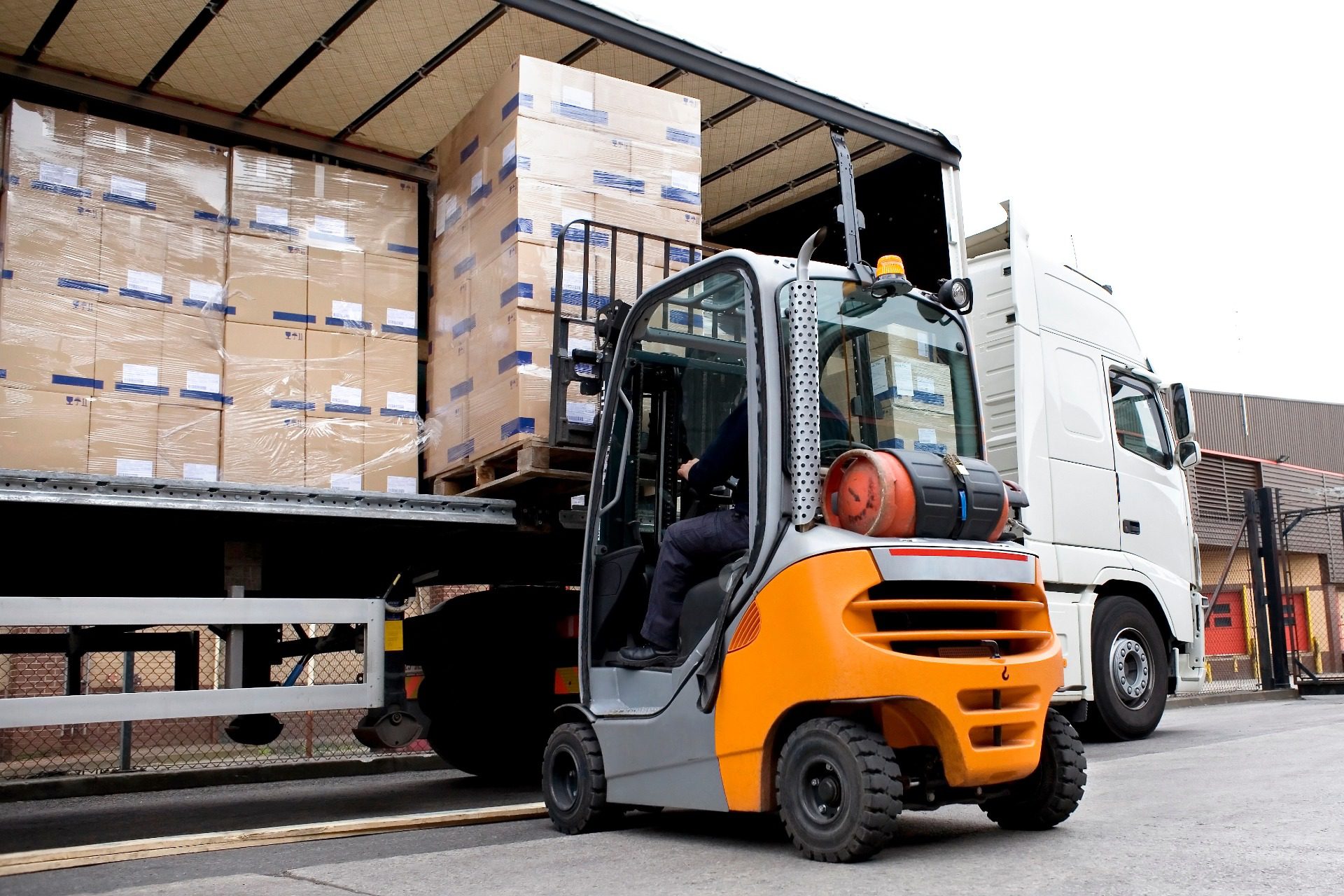To say the order fulfillment expectations of consumers have evolved would be something of an understatement. The words “next day delivery” resonate loudly, and not every retailer can make that promise. And if a customer cannot get a product within a week, they often buy it somewhere else. Enter omnichannel logistics and fulfillment, a technology-based opportunity for upstart and growing organizations to level the playing field.
Omnichannel logistics and fulfillment strategies bring all the pieces of a company’s supply chain, warehousing, retail outlets, and last-mile delivery capabilities into a singular system. Operations that partner with a 3PL to integrate this infrastructure and real-time analytics are growing sales, improving efficiency, cutting costs, and building brand loyalty. If your business struggles to get products into people’s hands as quickly as they desire, an omnichannel fulfillment strategy may be the solution.
What is Omnichannel Fulfillment?
Omnichannel strategies bring together wide-reaching factors that go into the order fulfillment process. Utilizing omnichannel models syncs things such as shipping, receiving, warehousing, packaging, and last-mile delivery, among other things. Its ability to generate real-time data regarding fulfillment workflows and other processes allows business leaders to optimize efficiency and consumer satisfaction rates. An organization’s ability to centralize and automate its fulfillment processes separates it from outfits that rely on multiple parties communicating and relaying information. Rather than responding to customer needs after the fact, omnichannel order fulfillment takes a proactive approach to sales.
Why is Omnichannel Fulfillment Important?
The primary reason omnichannel fulfillment has emerged as a retail necessity stems from the fact that an increased number of consumers insist on a seamless buying experience. With e-commerce sales volumes in the U.S. expected to exceed $5.7 trillion by year’s end, platforms are struggling to keep pace with demand. Brick-and-mortar operations are also experiencing a buy-online, pick-up-in-store (BOPIS) trend that has them scrambling to meet local demand. Perhaps no retail niche has been more impacted by the BOPIS trend than supermarkets. Curbside pickup or bagged in-store options emerged as a new normal that began during the pandemic.
Unless operations adopt cost-effective methods that streamline efficiency and meet consumer expectations, customers are inclined to pivot to competitors. Recent studies indicate that upwards of 83 percent of people consider how brands treat them in terms of meeting their expectations. Omnichannel fulfillment ensures a streamlined customer experience, by leveraging multiple pathways for comprehensive customer care. Utilizing this state-of-the-art approach drives profits higher and creates brand loyalty.
Components of Successful Omnichannel Fulfillment
It’s important to keep in mind that the omnichannel approach to order fulfillment is not necessarily a linear model. Rather than a business working directly with supply chain partners and delivery outfits, it positions your organization as the center of the order fulfillment universe. In an Astronomy 101 course, your business would be the sun, and third-party partners would move in its gravitational pull.
By changing the way decision-makers think about workflows, supply chains, BOPIS, and doorstep delivery through omnichannel software, a retailer can successfully buoy sales and cut costs. These are ways retailers achieve goals by integrating omnichannel software and infrastructure.
Integration Across Channels
Customer experiences must consistently improve to compete in the local, regional, and global marketplace. During the last decade — particularly since the pandemic — logistics, purchasing options, customer communication, and delivery convenience have undergone seismic shifts. What highly profitable e-commerce platforms and big box retailers have succeeded at is syncing their moving parts.
Managing what consumers see as a back end to buying products, thought leaders are leveraging technologies that allow them to automate, track, and meet consumer expectations. This typically involves tapping multiple sales channels to get goods where they need to go quickly and cost-effectively. The use of omnichannel-focused software, technology, and the real-time analytics they create, allow companies to bring everything together.
Responsive Warehouse Management
It may seem counterintuitive, but omnichannel strategies are both ubiquitous in nature and affordably scalable. When speaking with an omnichannel fulfillment expert, you’ll discover that a responsive warehouse requires a proactive management system. Warehouse management success calls for a system that delivers real-time product and order tracking. But what separates the omnichannel approach from others is that the software and technology pull together the status of these and other elements across multiple channels. Companies that enhance their warehouse management operations in this fashion usually outsource to a 3PL firm and take advantage of scalable pass-through costs.
Integrated Inventory Management
Industry-leading omnichannel systems sync selling pathways through the entire chain and account for warehouse inventories. They also integrate reverse logistics when customers return products. Because the front-end outlet or digital platform enjoys continually replenished data, each channel works harmoniously with others. Inventory management is no longer the purview of a single department. All key stakeholders have access to immediate inventory data.
Challenges in Omnichannel Fulfillment
Anytime a business innovation comes along, there will typically be some growing pains. The Omnichannel fulfillment model is not necessarily any different in this regard. Companies that try to make wholesale changes may experience the following challenges.
Maintaining Accurate Inventory Counts
Initial setups call for organizations to provide accurate inventory counts before turning the proverbial “On” switch. Once that hurdle has been cleared, omnichannel infrastructure can track products while maintaining accuracy.
Upgrading Infrastructure and Technology
Companies don’t always have the appropriate technologies to transition to an omnichannel system. Upgrading or shifting to better-suited software and technology may be required.
Streamlining the Supply Chain
Companies have changed the way they leverage supply chains since the pandemic. Widespread product shortages and delays hurt retailers even after the health emergency. Streamlining supply chains through near-shoring and tapping regional hubs are among the leading strategies to reduce fulfillment times.
Benefits & Challenges
| Benefits | Challenges |
|---|---|
| Improved inventory management | Maintaining accurate inventory counts |
| Increased sales and profits | Upgrading infrastructure and technology |
| Enhanced customer satisfaction | Streamlining the supply chain |
| Consistent brand experience across channels | |
| Faster order fulfillment | |
| Reduced costs (through automation and better data) | |
| Scalability (easier to adapt to growth) |
The Role of Third-party Logistics (3PL) Partnerships
One of the primary reasons companies have yet to onboard efficiency-driving opportunities such as omnichannel logistics and fulfillment stems from a lack of trained personnel. A 2021 Garter study highlighted that 74 percent of logistics leaders planned to increase their 3PL budgets for 2022 and 2023. Third-party firms with expertise in niche processes help improve efficiency and customer satisfaction. In terms of omnichannel fulfillment services, scalable costs can be seamlessly passed through to consumers. These are other reasons to reach out to a 3PL when integrating profit-driving systems.
Leveraging Expertise and Resources
A 3PL has a staff fully committed to serving one end. Firms invest in the best people and their ongoing education. Companies that tap 3PLs get all the expertise and ongoing education at a fraction of the price it would cost to hire in-house staff.
Expertise in Compliance and Risk Management
A 3PL also ensures that every step of your fulfillment process meets or exceeds industry standards. Data security and regulatory compliance are mission-critical, given the number of vile hackers trolling the internet. Adding a 3PL partner takes some of the cybersecurity weight off your shoulders.
Cost-Effective Scaling and Flexibility
Third-party experts offer cost-effective solutions to fulfillment and inventory needs. Like retailers, they are in the customer satisfaction business, and you are their client. Maintaining a healthy professional relationship prompts 3PLs to offer scalable services. It’s not unusual for industry leaders to scale 3PL services up or down in conjunction with seasonal needs.
Financial Benefits of Omnichannel Fulfillment
Outsourcing an organization’s fulfillment needs to a 3PL firm proves financially beneficial to companies in a variety of ways. Like the omnichannel model itself, monetary gains do not necessarily occur in a linear fashion. Keeping your ledger sheet at the center of the business universe, companies enjoy cost savings as well as increased sales and profits. These are ways enterprises typically experience higher quarterly and annual earnings after settling into the omnichannel process.
- Communication: The system improves communication with customers across platforms and devices. By alerting consumers in real time that items are available, sales increase. As products move through the supply chain, notifications keep people in the loop about delivery times. That type of real-time communication helps build brand loyalty.
- Inventory Efficiency: When overstocked items linger in warehouses and store shelves, businesses too often have to sell them off at a discount. The automation and advanced tracking applications associated with omnichannel fulfillment reduce these human errors. In other words, it catches things like duplicate orders and purchasing more than is seasonally appropriate.
- Cost Reductions: Some people are uncomfortable with the idea that AI and machine learning are replacing workers. The reality of business in the 21st Century is that technology and people must coexist. Omnichannel reduces the number of employees needed to constantly track merchandise and generate reports. However, the heightened sales and profits tend to increase the number of better-paying jobs.
Lastly, onboarding a 3PL to oversee omnichannel technologies doesn’t eat into an operation’s profits. Like other expenses, the scalable cost of outsourcing can be rolled into products and services.
ShipCalm: Your Omnichannel Fulfillment Partner
At ShipCalm, we provide third-party logistical support that includes omnichannel fulfillment. Our trained and dedicated experts work diligently with business leaders to integrate profit-driving solutions and help companies realize their full potential. Software integration, warehouse and order management systems, marketplace logistics, reverse supply chain oversight, and e-commerce fulfillment are just some of the reliable services a partnership with ShipCalm provides.
Final Thoughts
Evolving the way companies approach fulfillment through the omnichannel method is not a passing fancy. Meg-corporations such as Amazon and Walmart are already enjoying the brand loyalty, growth, and increased profits the process delivers. The question is whether you want to level the fulfillment playing field with Fortune 500 companies and gain an advantage over your immediate competitors. ShipCalm offers scalable options that make sense for growing businesses. If your operation would benefit from seamless connectivity, improved analytics, and customer loyalty, contact us today. Let’s get the omnichannel fulfillment process started.
Omnichannel Fulfillment FAQs
When making an informed decision about integrating next-gen analytics and logistics systems, it’s essential to understand precisely how they function and benefit your organization. Too often, misconceptions about omnichannel fulfillment’s role in critical processes blur a decision-maker’s vision. These are frequently asked questions industry leaders pose to 3PL experts about omnichannel fulfillment.
What are the benefits of implementing omnichannel fulfillment?
There are five key benefits business professionals tout after integrating omnichannel fulfillment strategies. These typically involve improved inventory management, concise reporting, brand positioning, customer loyalty, and greater profits.
How can retailers overcome inventory management challenges in omnichannel operations?
Retailers are not necessarily logistics and technology experts by trade. The common hurdles involved with pivoting to omnichannel fulfillment software and next-gen technologies are best handled by a third-party firm specializing in these areas. Companies that outsource to 3PLs enjoy scalable pricing that seamlessly fits into budgets.
Can small businesses implement effective omnichannel strategies?
When handled by a 3PL at a scalable rate, omnichannel strategies benefit companies of all sizes. What also makes this 3PL partnership invaluable is the fact that companies can increase their omnichannel bandwidth as they grow and reap financial benefits.
What role does technology play in successful omnichannel fulfillment?
When transitioning to omnichannel capabilities, it’s crucial to use compatible software and devices. Always consult with a 3PL expert to prepare company infrastructure for these upgrades.
How can retailers achieve a consistent brand experience across all channels?
Enterprises that onboard omnichannel logistics and fulfillment strategies build brand consistency, inventory visibility and trust. Consumers can access select brands across platforms, and shipments can be made from multiple locations to enhance consumer confidence.
What are some potential pitfalls to avoid in omnichannel fulfillment?
The greatest challenge involves connecting all the moving parts under the omnichannel umbrella. One example is not syncing brick-and-mortar fulfillment opportunities with those driven through an operation’s digital platform. Success requires comprehensively integrating every aspect of a retailer’s abilities and available products.
How does omnichannel fulfillment contribute to customer loyalty?
Omnichannel fulfillment augments customer loyalty because it helps companies meet consumer expectations. At the end of the day, customers want what they are purchasing within a promised time frame. Omnichannel allows businesses to take customer expectations and articulate the when, where, and how accurately. And when a hiccup occurs, buyers receive notifications alerting them in a timely fashion. That level of customer care and transparency adds value to any brand.






